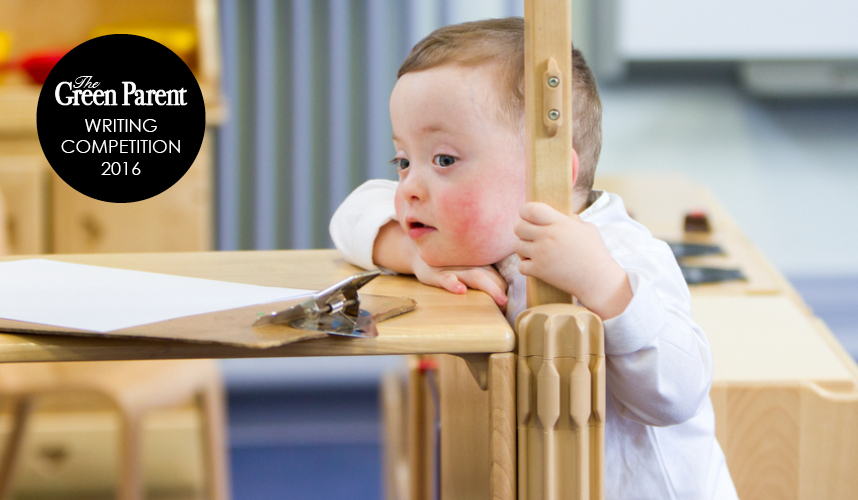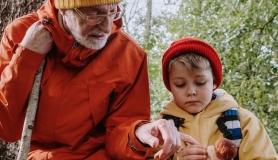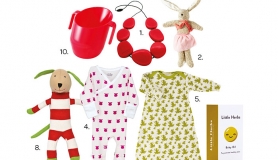Parenting is the toughest job we’ll ever have. Sometimes though, the circumstances that come our way make it even more challenging than we first thought. We start the journey with excited dreams, unspoken fears and our own vision of family life; perhaps echoing that of our parents before us, perhaps a very different path. On that Sunday morning in January 2012 when we found out we were going to have a baby, all those thoughts flooded into my head. I insisted that right that minute we had to go to a bookshop and buy some books about babies. I knew nothing about them! Sure, I was excited for family life and those ideals I had in my head, but the fears? Wow, so many I even wrote a list on my phone. It included thoughts such as, would I be able to cope with the sleep deprivation? What about birth? Would we be able to do all the renovation work to our house that we wanted to in time? And very oddly, I felt drawn to write as one of my worries ‘the child having a disorder’. I wonder if maybe this was on my heart as I already instinctively knew that this baby was going to be born with that extra chromosome.
The pregnancy progressed as you expect – tiredness, sickness, sore hips and no indication that there was any problem. Then the anomaly scan at 21 weeks threw up some queries about the baby’s health, which led to more investigations and discussions of ‘soft markers’ for Down Syndrome and over the next month we had an amniocentesis which confirmed the doctor’s thoughts. This baby’s results came back, in red text ‘ABNORMAL. Karotype: 47, XY, +21’. Those letters and numbers reducing our baby to this – a baby boy, with an extra chromosome 21. Down Syndrome.
So how did having a child with special needs affect our desire for gentle parenting and a natural approach to what we did? I really believe that an attached style of parenting has been the perfect answer to those challenges that we’ve faced to date and will face in the future.
Separation at birth and the early weeks
Daniel was born by caesarean section at 38 weeks due to complications that had arisen. We are eternally grateful that on that day the consultant obstetrician was an incredible doctor, who saw this operation as what we saw it; a life enhancing experience, the birth of our son, the moment I met my child for the first time. We got an incredible five to ten minutes immediately after he was born with him on my chest, but then he had to go, as planned, to the neonatal intensive care unit for lengthy investigations due to health problems they were anticipating. We got to spend that evening in my postnatal room, but he had to return to intensive care and was very ill for about ten days, before eventually moving to the special care baby unit (SCBU). We had a much shorter stay in hospital than many parents have to endure, either with sick or premature babies, but it was tough. Plenty of
research emphasises the importance of the bonding immediately after birth and over those early weeks yet, in his first ten days, I only got to hold Daniel a number of times.
What does a natural parenting response look like in these circumstances? Bonding with a baby in SCBU is difficult but can be done. I asked to be involved with as much care as possible, like changing nappies, and sat at the side of the incubator every day from after the morning ward round until my husband would come up after work, slipping out only to pump milk every two hours. We then spent time together at the hospital, at the incubator side. I spent much of the day perched on a stool stroking Daniel and talking gently to him over the sound of the machines keeping him alive. And of course bonding is an ongoing process so when he got home we limited visitors to the house, spent plenty of time skin to
skin, holding him on our chests and babywearing to strengthen the bond between us and to bring comfort to a baby suffering from night terrors, probably due to his traumatic first few weeks. For babies with a difficult start, the idea of a fourth trimester seems even more important.
Breastfeeding
I was formula fed as an infant and hadn’t given much thought to how I would feed my baby until we were expecting and my husband asked me to consider breastfeeding. Once I’d read up on it, I realised advertising had led me to believe that breastmilk and artificial formula milks were much of a muchness and therefore it wasn’t that important. How wrong I was! Before I went into hospital I think I’d read the first five or six pages worth of hits on google when I searched ‘breastfeeding a baby with Down Syndrome’ and had even watched webinars on the subject as I’d been told it might not be possible to feed a baby with special needs. Yet now, based on families I’ve met over the past few years, it actually seems like
babies with Down Syndrome are more likely to be breastfed. Certainly for many of us the journey was one with challenges but also one of the things we look back on with immense pride.
Daniel was tube fed while in hospital and was transitioned to bottles of expressed milk when he was discharged but I had been unable to get him to breastfeed. Feeds in hospital were stressful with a team of people gathering to check he fed within an allotted time before they would give him a bottle. Not exactly conducive to the start of a breastfeeding relationship. Once home, my wonderful community midwife stayed for an hour one Sunday afternoon and encouraged me that with time Daniel could do this; I just had to wait for when he wasn’t as tired and have lots of skin to skin in the meantime. Daniel was about seven weeks old when we were finally up and running with breastfeeding and off the bottles. Since then I’ve been put in touch with other mums in a similar circumstance and most of our babies went on to breastfeed for a year or even more. Not only did breastfeeding further help with the bonding process but it helped heal the gut after a far from ideal start (Daniel was refused donor milk in hospital and fed formula those first few days), helped strengthen oral muscles and boosted his immune system. It’s only anecdotal but I have noticed that Daniel and the other breastfed babies with Down Syndrome we know are much less likely to have a protruding tongue, something that is fairly common with people with Down Syndrome as they have smaller mouths.
How do you get babies with special needs to breastfeed? Give it lots of time! I’ve heard plenty of stories of babies with special needs taking bottle feeds or even being tube fed for months before transitioning to the breast. Waiting for Daniel to be well rested and not crying for a feed was important, so there were days when I only tried once or twice. For babies with low muscle tone, a common issue with Down Syndrome, babies will need more support, so I made sure I had lots of cushions and propped Daniel up well. He fed very slowly so I needed to be prepared to sit there for a long while. I also had to anticipate a lack of support before going to some of his medical appointments. Some of the health care professionals were very disappointed that they no longer knew how many ounces Daniel was getting a day, but I stood my ground, continued to monitor his nappies and agreed to regular weigh-ins to appease them. Also, I consider myself to have been breastfeeding the weeks he was bottle fed my milk too. Know that a breastfeeding journey doesn’t have to be the traditional baby latched on the mother’s breast for every feed, sometimes tube feeds, bottle feeds, a supplemental nursing system or donor milk is needed, and that’s ok!
Therapy Input vs natural development
Only in the last year or two have I come to learn about natural gross motor development. Our younger son has been left to his own devices, no sitting in plastic chairs or baby walkers and flew through his gross motor milestones. I was most impressed when he worked out for himself at 7 months how to get off the sofa safely (threw cushions off, then lowered himself onto them). However, when you’ve a baby with Down Syndrome, they need therapy input to achieve pretty much every milestone. From crawling, to saying his first word, to developing a pincer grip, Daniel has been in therapy to achieve it. This feels unnatural to many parents looking for a natural approach to parenting, but there are times when an organic approach isn’t actually the best decision for our circumstances. I’ve met families with children with special needs who have struggled with this. From those not wanting to push their child to parents who wouldn’t use sign language with their child against their speech and language therapist’s advice because they didn’t want their child to look different. Personally, I’ve realised that I have to parent the child I’ve been given. For us that’s a child who will need help to reach milestones and I’m happy that it feels the right thing for us to
do to facilitate Daniel’s development to occur in that critical early window.
What to do? It is a personal decision but for me the evidence was there for breastfeeding, for ensuring a good attachment to our infants and to gently discipline our children. So if the evidence is there for early intervention providing the best outcomes for my child, despite some of it going against more natural development advocated by others, I’ll do the physiotherapy, occupational therapy and speech therapy required.
Disciplining a child with a learning disability
Ah, my favourite topic! In my opinion natural parenting fits best with parenting a child with special needs when it comes to discipline. As my husband says even if he hadn’t come across natural parenting styles through me, how could you use conventional styles with a child with a learning disability? Sending them to time out, smacking, or authoritarian ‘because I said so’ reasoning just wouldn’t work, as well as being even more cruel to a child with limited understanding. When your child has a learning disability, the issue of discipline and behaviour is a very difficult one. We’re very fortunate that Daniel’s disability hasn’t resulted in serious behavioural issues like it does for others so I write from
a background of a child with a learning disability more than one with behavioural problems. How do you gently discipline a child whose understanding isn’t great? In our experience, with much patience, planning and prayer!
We have developed a script process where we identify areas that need disciplining. On our list we’ve had hitting/shoving his brother (who was newly walking), throwing anything and everything (still a favourite activity even at four years old) and repetitive asking for the same thing. Daniel, like other children with learning disabilities, needs consistency so it’s vital my husband and I say the same thing every time, as even with that it can take months for him to learn and understand what we’re saying. Our basic response is connect with him, address the behaviour, give him an alternative behaviour and move on. The language is simple. It’s incredibly effective. Of course, we make mistakes and there are
days I veer off script, mostly by adding more explanation. I can tell I’ve lost him but I still do it. There are days when my patience runs thin and I don’t say anything from the script, “Daniel, stop doing that!” or the generic “Behave!” (cue a completely blank face). But the days we stay on script it is incredible the difference it makes. That connection at the start gets him on board and listening and the brief correction of behaviour and attempt to relate to the emotion behind it is really working.
An example:
Daniel, you like to throw, don’t you? When you throw XX you can break it/break something else/hurt someone. If you want to throw, let’s get a ball! *redirect to a ball*
So there you have it, the special needs edition to natural parenting. There are many more areas I could go into but for us the benefits of having a gentle, attachment style parenting have reaped great rewards already in Daniel’s four years. I’d have done it anyway, but the child led approach has allowed us to deepen the relationship with a child whose start in life wasn’t ideal, to assist with his health problems and find an approach to discipline that works. The areas where we have to act outside of a more natural approach are just part of the unique fabric of every parenting journey. And to be honest, Daniel is just our son Daniel. Down Syndrome is only part of who he is. I don’t love him any differently to the way I love his brother with 46 chromosomes. Our children and our family life has turned out pretty much the way my ideals were when we first found out we were expecting him. We laugh, we read books every day, we go camping by the seaside, we dance around the kitchen in our pyjamas A LOT with some tough days thrown in, just like any other family too.
Born, raised and still living in Belfast, Nicola is a Christian mother of two boys. She is married and although an accountant by trade she now stays at home full time. An unnatural homemaker and fan of good food, she blogs at www.happyisherhome.com Instagram: @happyisherhome






